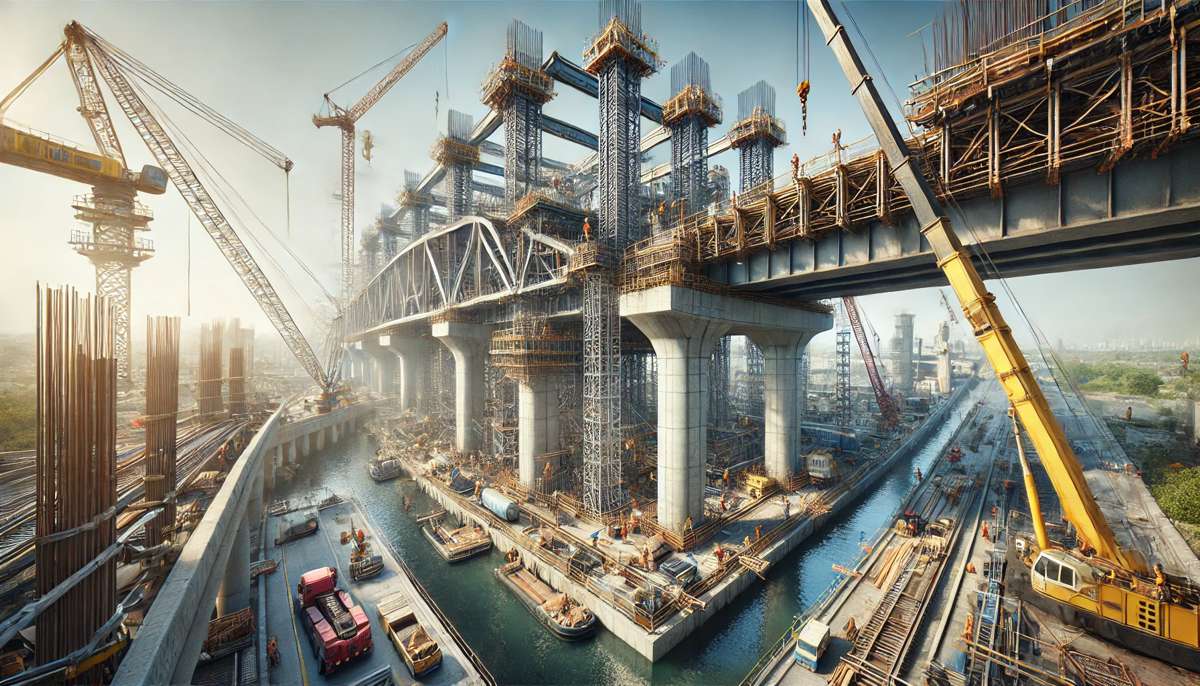How You Should Organise Construction Projects
Organising construction projects can be a complex task, involving multiple phases, teams, and resources. Proper organisation and selection of the most appropriate procurement route are essential to ensure everything runs smoothly, stays on schedule, and remains within budget.
By following a structured approach, you can create a well-organised construction project that minimises setbacks and maximises efficiency. Here’s a guide on how to organise your construction projects effectively.
Define the Scope of Your Project
The first step to organising any construction project is to define its scope clearly. The scope outlines what needs to be accomplished, including deliverables, timelines, and any limitations. This step is crucial because it sets the foundation for the entire project, helping to avoid misunderstandings and ensuring everyone is on the same page.
Some tips for defining the project scope include:
- Identify key objectives that clearly state what the project aims to achieve and the standards expected
- Outline project deliverables
- Set boundaries that specify what is included and excluded from the project to prevent scope creep, where unplanned tasks start to stretch timelines and budgets

Create a Detailed Project Plan
Once the scope is defined, create a project plan that maps out how the project will be completed. This should include tasks, timelines, resources, and team assignments. The project plan acts as a roadmap, guiding the team through each phase and ensuring everyone knows their responsibilities.
To develop a strong project plan:
- Divide the project into manageable tasks or phases, such as site preparation, foundation laying, structural building, and finishing
- Establish key milestones that represent significant project achievements, helping you monitor progress
- Identify the people, materials, and equipment needed for each phase of the project
- Develop realistic timelines for each task, ensuring they align with the overall project deadline
Implement Effective Project Management Tools
Using the right project management tools can make organising your construction projects much easier. These tools allow you to keep track of tasks, communicate with the team, and manage resources efficiently. From software platforms to mobile apps, there are plenty of options to support construction project management.
Consider using tools such as:
- Project scheduling software (like Microsoft Project or Primavera P6 to create Gantt charts and track progress)
- Collaboration platforms like Slack, Trello, or Monday.com for team communication, task assignments, and file sharing
- Construction-specific software like Procore or Buildertrend for document control, budgeting, and on-site tracking

Establish Clear Communication Channels
Effective communication is crucial in construction project management, as it helps prevent misunderstandings and keeps everyone informed about the project’s status. Establishing clear communication channels is essential to maintain smooth operations and minimise delays.
Here are some tips for effective communication:
- Schedule regular meetings (weekly or bi-weekly) to discuss project progress, address issues, and update plans as needed
- Define roles and responsibilities for clarity
- Using visual aids like blueprints, diagrams, and mock-ups helps to communicate ideas more effectively than text alone
Monitor Budget and Resources
Keeping a close eye on the budget and resources throughout the project is essential to stay within financial limits and ensure that resources are used efficiently. Good budgeting practices help prevent overspending, while effective resource management minimises delays caused by shortages.
To effectively manage budget and resources:
- Track expenses regularly to spot potential budget overruns early
- Use resource planning tools like Oracle Primavera or Smartsheet to allocate resources efficiently and track inventory levels
- Have contingency plans and funds to cover unexpected costs or delays

Implement Quality Control Measures
Quality control is critical in construction to ensure that the project meets standards and specifications. Implementing quality checks throughout the project helps catch issues early, reducing the need for rework and ensuring a higher standard of finished work.
To ensure quality control:
- Schedule inspections at key milestones, such as after the foundation is laid or after structural components are completed
- Develop a quality checklist for each project phase, listing essential standards and requirements
- Allow team members to report potential quality issues or suggest improvements, ensuring a proactive approach to quality management
Evaluate Project Performance
Once the project is complete, take time to evaluate the overall performance. Analysing what went well and identifying areas for improvement can help streamline future projects and make them more efficient.
Here’s how to conduct a project evaluation:
- Review timelines to highlight any delays and understand the causes.
- Analyse budget performance
- Gather feedback from team members, contractors, and stakeholders to get their perspective on the project’s success and any challenges encountered

Stay Organised For Success
Organising construction projects effectively requires careful planning, clear communication, and ongoing management of resources, timelines, and quality. By simply defining the scope, creating a detailed plan, using project management tools, monitoring the budget, and implementing quality control, you can set yourself up for a smooth project process.
An effective organisation will increase the chance of a construction project being successful and will help you to build a reputation for reliability and efficiency. This can be highly valuable for attracting future clients.





























